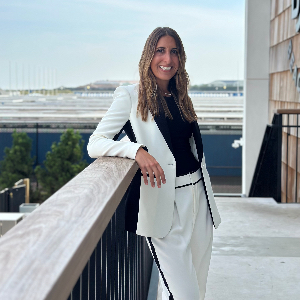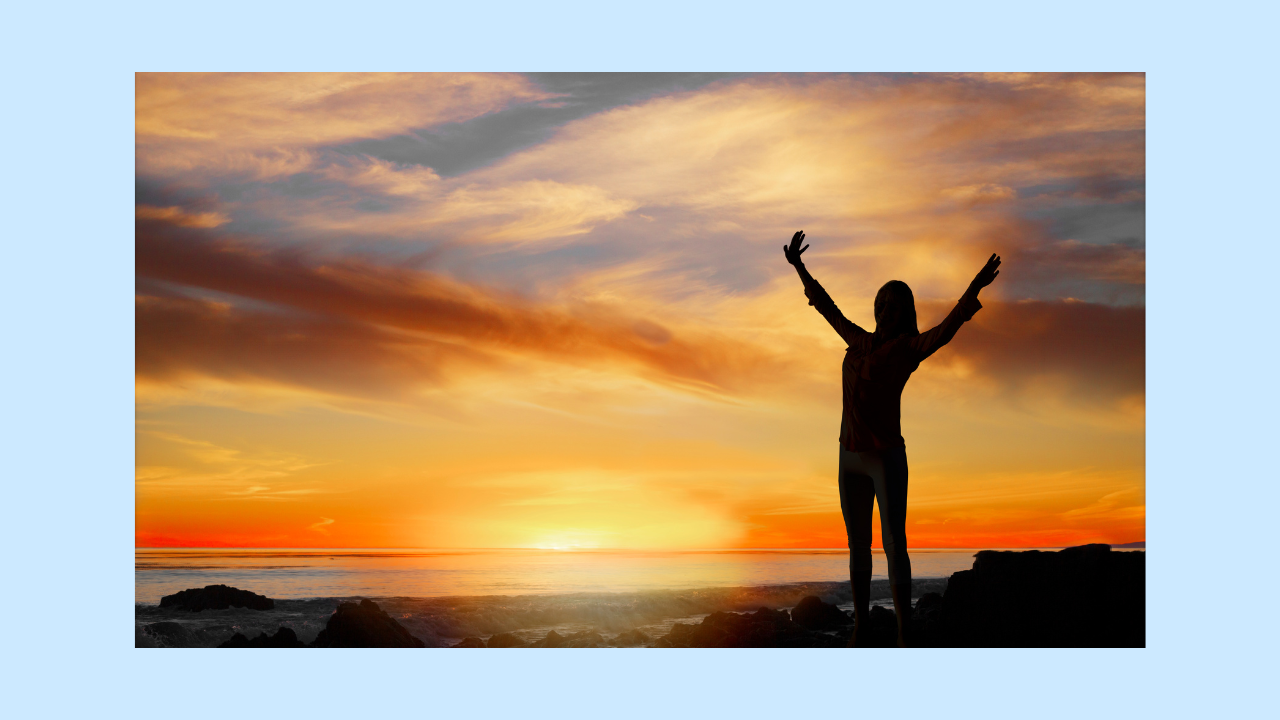3 Lessons That Brought Me to My Happiest, Most Fulfilled Self at 36

Introduction: Creating Happiness In My 30's
This month, I celebrated my 36th birthday. When I was in my 20s, I thought the worst thing that could ever happen to me was to enter my 30s single. I truly believed that happiness was tied to a specific timeline—marriage, kids, a certain kind of socially acceptable success. And I thought that without those things, it would be impossible to be happy.
Well, here I am, six years into my 30s, and I have to say: It’s not that bad. Actually, it’s been kind of great. I am, without a doubt, the happiest I’ve ever been. And I don’t mean a fleeting, celebratory kind of happiness—I mean a deep contentment. A peacefulness. A calm. A centeredness. A fullness.
Looking back, I see many life lessons in my 30s that helped me get to this place of joy. I did not get here by chance—I got here with a pointed effort to know myself, love myself, and give myself a happy life. So, in the spirit of reflection, I want to share the top three lessons that helped me find happiness in my 30s. My hope is that they resonate with you and help you create your own sense of fulfillment.
1. Let Go of the Life You Thought You’d Have to Fully Live the Life You Have
In my 20s, I was so fixated on the life I thought I should have that I couldn’t see the one I actually had. I believed I’d be married with kids by a certain age, and when that didn’t happen, it felt like I was falling behind. Every year that passed without reaching that vision felt like a failure.
But as I entered my 30s, something shifted. I realized that if I kept measuring my life against an imagined version that didn’t exist, I would never truly be happy. So, I made a choice—a hard one. Instead of letting the absence of what I thought I “should” have define me, I decided to fully embrace the life I did have. I began looking at the ingredients I already had—not the ones I was missing—and I chose to build something meaningful with them.
I left my job as a teacher and created my own business. I became a digital nomad and worked remotely from different corners of the world. I started structuring my days around what felt nourishing to me—daily walks, yoga, reading, and quiet reflection. I let go of unfulfilling relationships that kept me “stuck” in the idea of “what should be” and embraced solitude until I found relationships that accepted me for me. And instead of longing for the partner I didn’t have, I fell in love with the person I did have—myself. It’s been a beautiful and rewarding journey.
One of the most powerful life lessons I’ve learned in my 30s is that acceptance is not passive. It’s not about giving up or settling. It’s about choosing to stop resisting what is and, instead, working with what is to build something wonderful in the here and now. When you do that, life opens up in ways you never could have imagined.
How to apply this lesson:
Take a step back and ask yourself—what parts of your life are you resisting? What would it look like if, instead of wishing things were different, you leaned into what is and started building from there?
2. It Is Your Responsibility to Take Care of Yourself
Self-care is not an indulgence. It’s not a luxury. It’s your actual responsibility.
We’re taught to get an education, land a job, build a career, and take care of others—but no one teaches us how to take care of ourselves. We spend years learning math, science, and history, yet where are the lessons on protecting our mental, physical, and emotional well-being? That realization was a major turning point for me. In all my efforts to meet life’s expectations, I had completely neglected the most important person in the equation: me.
For years, I treated self-care as an afterthought, something to squeeze in when everything else was done. But the truth is, if you don’t look after yourself, no one else will—and honestly, no one else can. You are the one responsible for your well-being, and that’s not selfish. That’s reality.
Once I embraced this, I stopped waiting for the “right time” or for permission to take care of myself. I took ownership. I started moving my body daily—through walks, yoga, and stretching—not as a chore, but as a way to feel good. I rested when I was tired instead of pushing through exhaustion. I ate foods that supported my energy rather than just grabbing what was convenient. I prioritized solitude and reflection, not because I “deserved” it, but because I needed it. These weren’t indulgences; they were the foundation of my well-being.
You were put on this earth, and someone has to take care of you. If not you, then who? No one else owes you more love, care, and respect than you owe yourself.
We’ve also been told that self-love is selfish. But ask yourself: why would anyone else be more worthy of your care than you are?
Every day, I take ownership of my needs. I move, I rest, I nourish my body and mind, and in doing so, I show up in this world as my best self. And here’s what I’ve learned—self-care isn’t about pampering yourself once in a while. It’s about making choices every single day that protect your peace, nurture your well-being, and honor who you are.
How to apply this lesson:
Ask yourself: What is one way you can show up for yourself today? Not as a reward, but because it’s your responsibility to care for you.
3. Until You Remove the Voices That Aren’t Yours, You’re Not Really Alive
For most of my life, I was running on programming I didn’t even choose. But I didn’t realize it until I felt lost, unhappy, and disconnected from myself. That’s when it hit me— I did not know who I was or what I wanted, I just knew who other people saw me as, and what they expected from me!
We all inherit ideas about life, success, and worth—from our parents, society, and experiences that shaped us when we were too young to question them. And unless we stop and examine them, we end up living a life built on someone else’s blueprint, following rules we never agreed to.
One of the biggest shifts in my life happened when I started separating my voice from the noise. I stopped asking, “What should I do?” and started asking, “What do I actually believe?” and “What do I actually want?” That was the moment I truly started living.
Everywhere I went, I asked myself, What would I do right now if I weren’t worried about being ‘right’ and just did what felt true to me? At first, I had no idea. But I experimented. I tried new things, listened for my inner voice, and slowly but surely, it got louder. Eventually, it became stronger than the outside opinions that had ruled my life for so long.
I worked with a therapist to unlearn the negative beliefs that kept me stuck and small. When I enrolled in my life coaching program, I took that work even further, deconstructing every unconscious assumption I had about myself and the world. I rewrote my belief system—this time, based on the person I wanted to become and the life I wanted to create. And now? My life is finally my own.
This isn’t an overnight process. But every time you strip away expectations that don’t belong to you, you gain more freedom. And the more you live in alignment with your truth, the more peace you’ll find.
How to apply this lesson:
The next time you think you “should” do something, pause. Ask yourself: Is this truly my belief, or is this something I was taught to believe? Then, challenge yourself to rewrite it with something more authentic. If you need help uncovering your truth, that’s exactly what I do in authenticity coaching. For support, click here to learn more about coaching.
Final Thoughts:
Here’s the thing: My life on paper hasn’t changed drastically in the last few years. And yet, I feel completely different. The happiness I was chasing in my 20s wasn’t something I had to “achieve.” It was something I had to allow. It wasn’t something I had to find either; it was something I had to create.
By accepting my life as it is, taking responsibility for my well-being, and aligning with my own voice, I’ve found a sense of fulfillment I never really knew could exist. While there was definitely pain involved in the growth, I am grateful I turned the pain into something beautiful: my fulfilling and joyful life in my 30s.
So, as I step into 36, I do so with deep gratitude. For all the lessons. For all the unexpected twists. For the joy I’ve found in simply being.
And if you’re feeling stuck, frustrated, or like your life isn’t where you thought it would be—whether that’s in your 20s, 30s, or 40s—I hope these life lessons can help you see that happiness isn’t found in some future milestone. It’s in the way you choose to show up right now.
What life lessons in your 30s have shaped you the most? I’d love to hear them. Email me at [email protected] and let's keep this beautiful conversation going. And, if you're interested in exploring life coaching packages so that you can create happiness in the life you have, click here to get started today.
Want more inspiration in your inbox?
Join the mailing list to get the latest blog posts, life coaching tips, and personal updates from Carol Braha Coaching.



